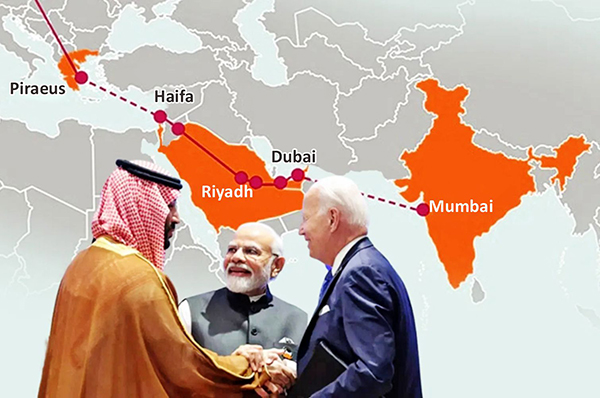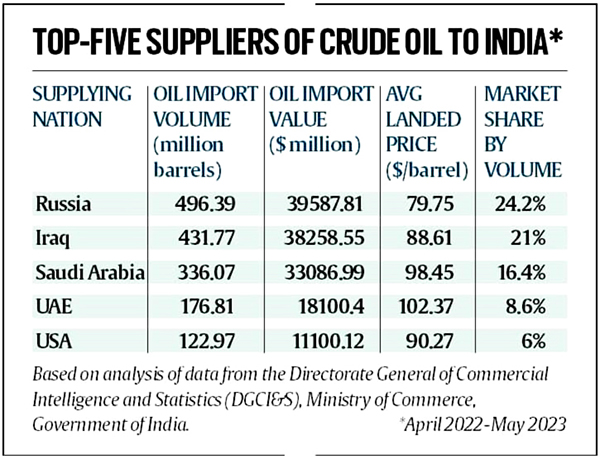
We call for immediate de-escalation, exercise of restraint, stepping back from violence and return to the path of diplomacy,” the Ministry of External Affairs stated as the tensions escalated in the Middle East between Israel and Iran, presenting challenges for India. This crisis, which has its roots in long-standing geopolitical and religious tensions, has the potential to significantly impact India due to its strategic interests and economic ties with the region. Understanding the implications of the ongoing conflict and exploring potential avenues for diplomatic engagement is imperative for New Delhi.
There is an impact on India across multiple dimensions.
Strategic Challenges
India, with its intricate web of relations with both countries, finds itself in a complex and delicate position, balancing its defense and security partnerships with Israel and Iran. This delicate balance is exemplified by the India-Israel Innovation Initiative (I2U2), a joint investment plan in critical sectors. Over the past decade, deepening defense and security partnerships with Israel have been a strategic move for India. Simultaneously, India has maintained its relationship with Iran, particularly regarding economic and energy interests. The Chabahar port project mainly showcases India’s efforts to bypass Pakistan and secure access to Afghanistan and Central Asia. Likewise, there are blooming concerns regarding the advancement of the India-Middle-East Economic Corridor (IMEC), which was publicized during the G20 summit in New Delhi in September 2023, would facilitate trade between India and the Middle East, and a rail link was envisaged from the Arabian Sea ports to Haifa port in Israel. However, the ongoing conflict threatens to disrupt this delicate balance, potentially leading to a complete reevaluation and even dissolution of India’s strategic partnerships and connectivity projects.
Energy & Economic Instability
India has vast and significant energy reliance and interests concerning the Gulf region and, at this time, faces an immediate threat due to its heavy dependence on oil imports. Iran’s geographical position grants it leverage over vital maritime chokepoints, including the Strait of Hormuz and the Bab el-Mandeb Strait, which is also known as the Gate of Tears which is crucial for various energy, LNG, crude oil, and trade with Africa and Europe. The Strait of Hormuz, which connects the Indian Ocean to the Persian Gulf, is a gateway for oil shipments from significant producers such as Saudi Arabia, Iraq, and the United Arab Emirates. The narrow strategic passages are controlled by Iran, which is essential for India’s trade. Indian cargo shipments passing through these routes may face heightened risks due to regional instability arising from regional conflicts. Because of this, the shipping companies would opt for other routes and ways that might be longer, which would not just disrupt the trading activities and supply chains but also be expensive, increasing the operational costs for India. In addition, Iran’s ability to disrupt or block this crucial maritime route directly threatens India’s energy security, potentially leading to severe and immediate supply shortages and price fluctuations in the domestic market. Given that India imports over 80% of its crude oil from West Asia, any escalation in the conflict could exacerbate India’s energy security concerns, increasing oil prices and creating economic instability. Any disruption or challenges around these chokepoints could severely and immediately impact India’s energy security and financial stability, posing a grave and immediate risk that cannot be ignored.
Security Concerns
That said, this war could heighten India’s security concerns as well because it will increase hostility and destabilize the Middle Eastern region. This could not just pose direct threats to Indian nationals in Iran and Israel but also to India’s need to reevaluate its security strategies, considering the instability in the region, which could impact India’s security. War could draw in other major powers, and the involvement of the major powers creates more instability. The US has traditionally supported Israel, while Iran has closer ties with China and Russia, and this conflict could add more intricacies to the region, which could spill over into neighboring areas, including South Asia, affecting India’s security environment. It is also important to note that war has often accelerated the rise of extremism and terrorism, which could have long-term potential spillover effects as groups aligned with either Iran or Israel could target India because of the discontent with the Indian stance in the crisis.
Diplomatic Issues
Lastly, India has maintained good relationships with both Iran and Israel; however, it could be severely tested at this time. The continuing hostility and war could force India to take sides. This could affect regional alliances and power structures, impacting India’s long-term diplomatic relations. India has significant relationships and interests associated with Gulf Cooperation Council (GCC) countries, which include Bahrain, Kuwait, Oman, Qatar, Saudi Arabia, and the United Arab Emirates (UAE). With the presence of ongoing war, India is in a difficult position because India’s steps, actions, or choices could strain India’s relationship with either party, which could severely impact its defense, security, strategic, economic, or geopolitical interests. Hence, maintaining interest while maintaining the balance is a diplomatic challenge for India.
Policy Recommendations
Though numerous challenges exist on multiple fronts, India’s diplomatic stance is essential in navigating those challenges while maintaining a stable relationship with all parties. Currently, India is actively engaging with both Iran and Israel, expressing its concerns over the escalation of hostilities and emphasizing the importance of immediate de-escalation. The various Indian interests in the region underscore the need for careful diplomacy to safeguard its national interests. It is necessary to mitigate the risks and uphold its national interests amidst escalating tensions. The Ministry of External Affairs has expressed grave concern over the escalation of hostilities and emphasized the importance of immediate de-escalation. The various Indian interests in the region underscore the need for careful diplomacy to safeguard its national interests.
Engagement with Regional Stakeholders
With its track record of mediation and conflict resolution, India could facilitate talks between conflicting parties while navigating some essential interests. Strengthening its strategic partnerships with key regional players and engaging in collaborative efforts with Gulf countries and other regional stakeholders could bolster India’s resilience in overcoming potential challenges in multifaceted domains. Maintaining open communication for mediation and negotiation could significantly reduce regional tensions. In addition, multilateral forums such as the United Nations, Arab Council for Regional Integration, Gulf Cooperation Council (GCC), and Organization of Islamic Cooperation (OIC), which is often involved in resolving conflicts disputes in Muslim work, can work together with India for resolution and adherence to international law.
Energy Diversification
Given the instability in the Middle East region and the immediate threat to India’s energy security, India must accelerate its efforts to diversify its energy sources and reduce its dependence on oil and energy imports. Investing in renewable energy projects and energy efficiency with alternative suppliers can secure India’s energy interests, maintain the trading stream, and increase resilience to external shocks. This is not just a long-term strategy but an urgent necessity to mitigate the immediate risks of the Middle Eastern crisis.
In conclusion, the Middle Eastern conflict poses a significant challenge to India’s interests, peace, stability, and the rest of the world. It is an opportunity for India to actively act as a mediator to foster stability and dialogue in the Middle Eastern region and assert its leadership on the global stage. This can safeguard India’s economic interests, strategic agility, diplomatic understanding as well as the collective security of the international community. However, the road ahead remains uncertain, requiring India to tread carefully while staying true to its principles and interests.


















